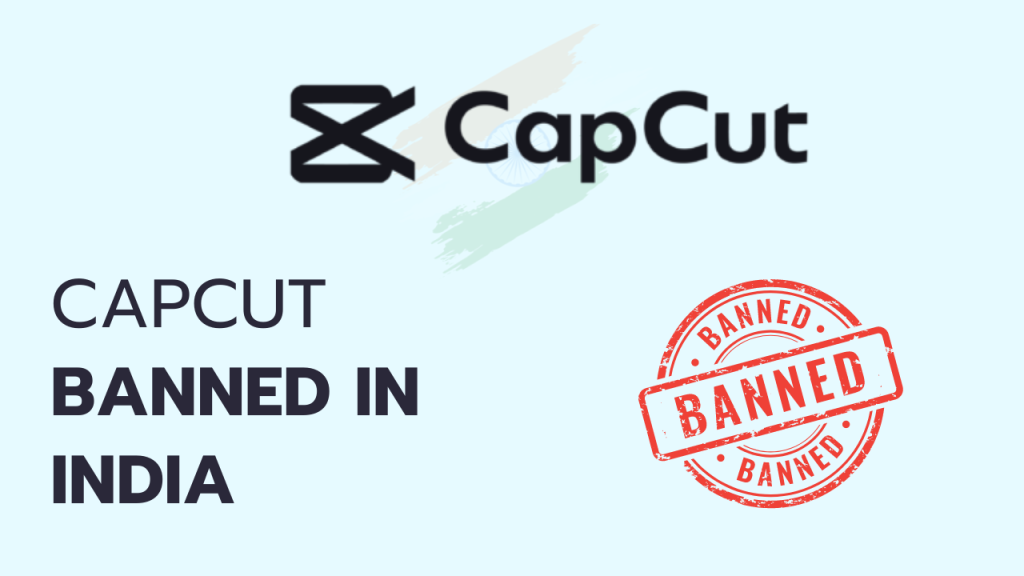Why is capcut banned in india. The ban on CapCut in India raises important questions about data privacy and national security. Many users have wondered why CapCut is banned in India, as it was part of a larger crackdown on Chinese apps amid escalating tensions between the two nations.
This blog post delves into the shocking truth behind the decision, exploring the implications for users and the broader tech landscape in India. Join us as we uncover the reasons behind this controversial ban and its impact on the video editing community.
AgriStack is a digital system that gathers and connects various data related to farming. Think of it as a giant online toolbox filled with useful info and services. The main purpose? Help farmers grow more crops, be transparent, and encourage innovation. By bringing together data from many sources, AgriStack aims to make farming easier and more efficient
Table of Contents
Data Privacy Concerns

The Indian government expressed serious concerns over data privacy with CapCut. Officials suggested that the app could collect sensitive personal data. This data could potentially be shared with foreign entities, particularly the Chinese government. This was seen as a significant risk to user privacy.
Transitioning from this point, the broader scope of such data collection practices came under scrutiny. Questions arose about how securely the data was stored and who had access. CapCut, like other banned apps, faced allegations of improper data handling. Therefore, these privacy issues were central to the decision to ban the app in India.
National Security Risks
The Indian government raised alarm bells regarding CapCut’s potential national security risks. Authorities feared the app could serve as a tool for espionage, jeopardizing India’s sovereignty. Furthermore, there were concerns about cyber threats, where malicious actors might exploit vulnerabilities within the app.
The notion of foreign influence, especially from China, added to the tension. Consequently, the government scrutinized the intentions behind such apps, suspecting covert activities. These apprehensions, coupled with the growing geopolitical strains, contributed to the strict measures taken against CapCut. Thus, national security considerations played a critical role in the app’s prohibition in India.
India-China Border Tensions
The ban on CapCut in India coincided with a period of heightened tensions between the two nations. The Galwan Valley skirmish in June 2020 escalated the situation, leading to increased scrutiny of Chinese influence in India’s tech sector. Nationalist sentiments surged, prompting the government to take a hard stance against Chinese apps.
The political and military standoff underscored fears about the potential misuse of technology for espionage. Consequently, CapCut and other apps became casualties in a broader geopolitical conflict, as India sought to assert its sovereignty and protect its digital infrastructure from perceived threats.
The Broader Ban on Chinese Apps
In June 2020, India expanded its ban to include 59 Chinese apps. Apps like TikTok, WeChat, and UC Browser were also targeted. This sweeping action aimed to curb potential risks related to data privacy and national security. As tensions with China rose, the government sought to mitigate foreign influence in the digital domain.
Popular apps, widely used by millions, suddenly vanished from app stores. The ban’s ripple effect was felt across social media, messaging platforms, and browsers. Consequently, users had to find alternative solutions, significantly altering India’s digital landscape and user habits.
Impact on Indian Users
The ban on CapCut significantly disrupted the video editing experience for many Indian users. Content creators, who relied on the app for its user-friendly interface and advanced features, had to scramble for alternatives. Transitioning to new apps posed a challenge due to the learning curve and varied functionalities.
Many users found it frustrating, as they had to invest additional time to adapt. Moreover, collaborations and projects that depended on CapCut faced delays, affecting productivity. The sudden disappearance of a widely-used tool highlighted the dependence on these apps and the broader implications of such regulatory actions.
Reactions from ByteDance
ByteDance, the parent company of CapCut, expressed disappointment and concern over the ban. They emphasized their commitment to user privacy and security. They asserted that they operated by local laws and regulations. ByteDance highlighted the app’s popularity and positive impact on users.
The company sought to engage in dialogue with the Indian authorities to address the concerns. Additionally, ByteDance assured users that their data was stored securely. They maintained that allegations of espionage were unfounded. The company aimed to resolve the issue and restore access to its user base in India.
Alternatives to CapCut

Indian users looking for alternatives to CapCut have several options. Apps like InShot, Kinemaster, and VivaVideo offer robust video editing features. InShot is known for its easy-to-use interface, while Kinemaster provides advanced tools for professional editing. VivaVideo, on the other hand, is popular for its wide range of effects and transitions.
These alternatives help content creators continue their work without compromising on quality. Transitioning to a new app may require some adjustment, but these tools ensure a smooth experience. Thus, users can seamlessly shift their video editing projects to reliable alternatives.

